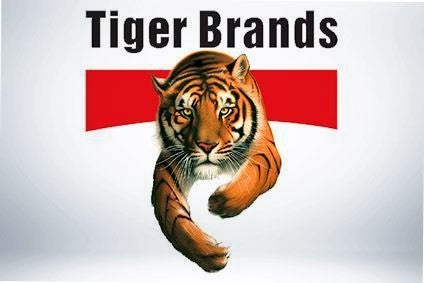
The South Africa-based consumer goods group, with businesses spread across food and beverages, commodities, home care and personal care, has started the fund with an initial capital outlay of less than ZAR100m (US$7.1m). The fund is targeted at product areas in which Tiger Brands operates, or in technologies linked to those operations, according to chief executive Noel Doyle.
Geographically, the fund will focus on, but not exclusively, South Africa, he said.

Discover B2B Marketing That Performs
Combine business intelligence and editorial excellence to reach engaged professionals across 36 leading media platforms.
Doyle confirmed the details of the VC fund in a post first-half results call with analysts, noting publicly-listed Tiger Brands experienced a particularly challenging six months marked by competitive price pressures, making the need for branded innovation more pertinent.
He also hinted at the possibility of future M&A as the company aims to “work on a more courageous culture” to build growth organically and inorganically, particularly when the CEO said private-label opportunities were less than anticipated during the first half ended on 31 March.
“We believe that this [VC fund] will give us early access to some potential growth opportunities. We are not necessarily going to see the benefit of it in the next year or two but it’s something that’s essential for us to do. We have to find those high-growth, high-potential businesses,” Doyle explained about the yet-to-be named fund.
Tiger posted revenues of ZAR16.4bn, an 8% gain over the first half of last year. And after pushing through price increases amid 9% inflation for the group, spurred by higher commodity and packaging costs, Tiger’s operating profit rose 16% to ZAR1.6bn.

US Tariffs are shifting - will you react or anticipate?
Don’t let policy changes catch you off guard. Stay proactive with real-time data and expert analysis.
By GlobalDataIt also recorded foreign-exchange losses of ZAR56m after seeing a positive impact of ZAR84m in the corresponding period.
Volumes fell 1% as “aggressive pricing” pressures appeared in February and March as Tiger’s competitors sought to regain market share. It is a “major battle for volume out there”, Doyle said.
“We are gaining some momentum in a really challenging environment where we’ve had a lot of price-led promotional activity. And the other challenge we’ve had in this environment is with the currency as strong as it’s been and it’s really put our deciduous fruit [business] under pressure,” Doyle noted, referring to the fruit assets put up for sale last year.
The deciduous fruit business posted a loss of ZAR52m based on revenues of ZAR586m. Tiger said last August it had hired advisers at South Africa-based financial services group Absa to handle the sale.
As an update, Doyle said Tiger is in negotiations with an interested party for the fruit assets but the recent results “don’t make it easier to put a deal together” and so there is probably still “quite a road to go”, adding: “So, whereas we had been hoping to have managed that business close to a breakeven, at these exchange rates it looks like it’s going to make another significant loss for the year”.
Elsewhere in the financial metrics, Tiger’s profit before tax rose 85% to ZAR1.73bn, while net profit came in at ZAR1.4bn, compared to ZAR360m a year earlier. Earnings per share climbed 126% to 755 South African cents, while the headline measure (HEPS) was up 21% at 741 cents.
In the consumer branded division, which also now includes baby products previously listed under home and personal care, revenues climbed 4% to ZAR6.04bn, with price inflation of 6% and a volume loss of 2%. Within that group, groceries posted revenues of ZAR3.1bn, up 2%, while snacks and treats increased 10% to ZAR1.2bn in revenues.
The exports and international segment generated revenues of ZAR1.8bn, up 18%.





